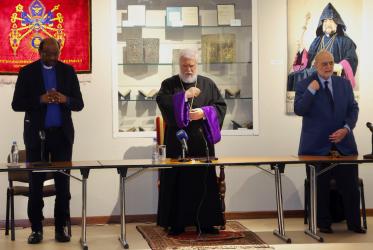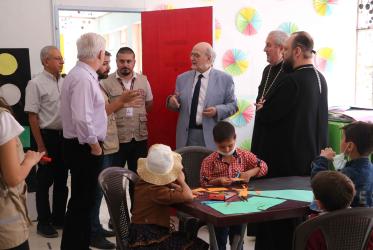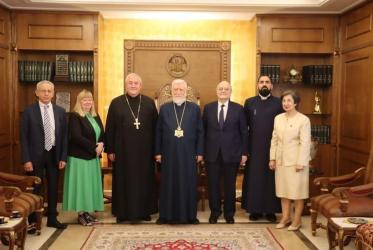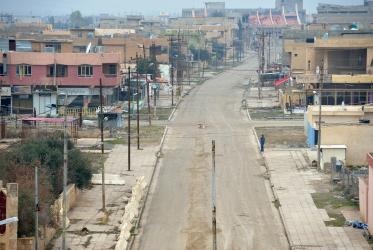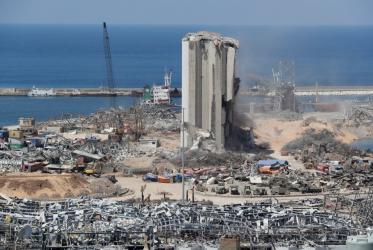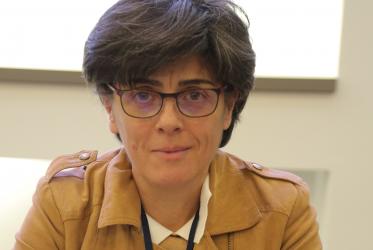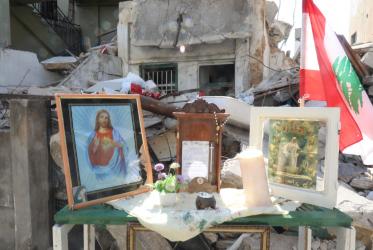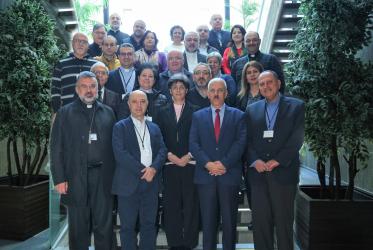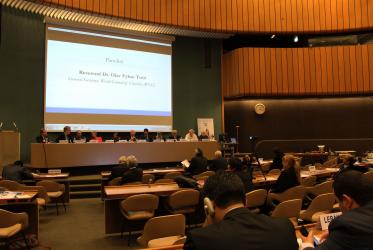Displaying 1 - 20 of 42
In Lebanon, “without peace there is no justice”
21 July 2021
Hope prevails in times of crisis in Lebanon
14 September 2020
WCC joins calls for a peaceful and just transition in Lebanon
29 October 2019
A moment in ‘Time’: an interreligious vision in Erlangen
20 December 2018
“Love will find a way”
23 August 2018
Islam and Christianity: finding the common ground
16 March 2017
Strong bridges needed more than ever
21 December 2016
